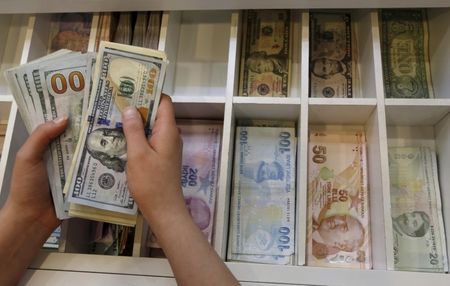Voting has begun for Japan's House of Councillors election. All eyes on whether the ruling coalition will be able to retain its majority amid growing public frustration with rising prices and support for emerging parties, Kyodo News reported on Sunday.
The results of this election will be a deciding factor in the fate of Prime Minister Shigeru Ishiba's minority government, according to Kyodo News. Failure to maintain control of the upper house will make parliamentary deliberations even more difficult and could possibly cost him the premiership, it added.
125 seats are up for election in this election cycle. Prime Minister Ishiba's Liberal Democratic Party (LDP) need to win at least 50 seats to retain its majority in the 248-member upper house. The party currently holds 75 seats in the other half of the chamber, which is not up for election on Sunday.
According to Kyodo News, Upper House members serve a term of six years, while House of Representatives members' terms can be dissolved by the Prime Minister. In Japan, half of the members of the upper house are replaced in elections held every three years, to prevent a complete overhaul.
Of the total 125 seats, one will be filled by vacancy, 75 seats will be elected in constituencies and 50 seats will be elected on the basis of proportional representation. Around 520 candidates are in the fray for these seats.
Pre-election media surveys paint a gloomy picture for the ruling coalition of Prime Minister Ishiba and the Komeito Party, the LDP, while smaller opposition forces are expected to gain strength. During the campaign period, debate intensified over a possible reduction in the consumption tax and policies relating to foreigners.
According to NHK World Japan, the most prominent issue in these elections is rising inflation, which is at the forefront. Other major issues are social security, population decline and foreign policy issues.
It was reported that the Japanese Prime Minister conducted a 17-day campaign to secure a vote of confidence in his administration as Japan faces numerous challenges, including protecting national interests in tariff negotiations with the United States.
Opposition parties such as the Democratic Party for the People and the Japan Innovation Party are united in their call to reduce or eliminate the politically sensitive consumption tax to aid inflation-stricken families, Kyodo News reports.
As per Kyodo News, the populist Sanseito party has been using social media to attract younger voters, and is being seen as a potential game-changer in the election, with media polls suggesting that the minor group, known for its nationalistic platform, has seen a surge in its popularity.
Its "Japanese First" slogan has struck a chord with conservatives, although its hardline stance on foreigners has drawn criticism as being xenophobic.
With the inputs of ANI

 6 hours ago
1
6 hours ago
1






















 English (US) ·
English (US) ·